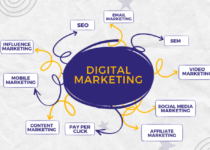Building the Ultimate MarTech Stack: Essential Tools for 2025
From CRM to AI: The Essential MarTech Tools You Need
In the rapidly evolving landscape of marketing technology (MarTech), constructing an optimal stack is crucial for businesses aiming to enhance customer engagement, streamline operations, and drive revenue growth. As we navigate through 2025, the integration of advanced tools across various categories becomes imperative. This guide outlines essential components and exemplary tools to consider for building a robust MarTech stack.
1. Customer Relationship Management (CRM)
A robust CRM system serves as the cornerstone of effective customer interaction, enabling businesses to manage relationships and data efficiently. It centralizes customer information, facilitating personalized communication and improved service delivery.
- Salesforce: Renowned for its comprehensive features, Salesforce offers AI-driven insights and automation to enhance customer engagement.
- HubSpot CRM: User-friendly with integrated marketing automation, it provides seamless sales pipeline tracking and extensive integrations.
- Zoho CRM: Ideal for small to mid-sized enterprises, Zoho offers AI-powered analytics and multichannel communication capabilities.
2. Marketing Automation
Automation tools are pivotal in scaling marketing efforts while maintaining personalization. They streamline lead nurturing, email campaigns, and customer engagement, reducing manual workloads.
- Marketo Engage: Tailored for B2B marketing, it integrates lead management, analytics, and campaign execution.
- Pardot: Designed for B2B marketers, Pardot offers automated lead scoring, nurturing, and seamless Salesforce integration.
- ActiveCampaign: Combining email marketing, CRM, and automation, it provides AI-driven insights suitable for SMEs.
3. Data and Analytics
Data-driven decision-making is paramount. Advanced analytics tools enable businesses to measure performance, understand customer behavior, and optimize campaigns effectively.
- Google Analytics 4 (GA4): A next-generation platform offering AI-powered insights and cross-platform tracking.
- Adobe Analytics: Provides deep segmentation, predictive analytics, and AI-driven recommendations.
- Tableau: A visualization tool that integrates with various data sources to deliver real-time insights.
4. Content Management and SEO
An effective content strategy is underpinned by a robust Content Management System (CMS) and Search Engine Optimization (SEO) tools, driving organic traffic and enhancing brand visibility.
- WordPress: A widely-used CMS known for its flexibility and extensive plugin ecosystem.
- SEMrush: Offers comprehensive SEO and competitive analysis to optimize search rankings.
- Ahrefs: Specializes in backlink analysis, keyword tracking, and content strategy development.
5. Social Media Management
Managing social media presence is vital for brand awareness and customer engagement. Effective tools facilitate content scheduling, audience analysis, and performance tracking.
- Hootsuite: Supports multiple platforms, offering scheduling, monitoring, and analytics features.
- Buffer: Provides intuitive scheduling, engagement tools, and analytics to optimize social media strategies.
- Sprout Social: Combines social media management with customer relationship insights, enhancing engagement.
6. Customer Data Platforms (CDP)
CDPs unify customer data from various sources, creating comprehensive profiles that inform personalized marketing strategies.
- Segment: Collects and unifies customer data, enabling targeted and personalized marketing efforts.
- Tealium AudienceStream: Offers real-time customer data integration and segmentation for enhanced engagement.
- mParticle: Provides a centralized platform for data collection and synchronization across channels.
7. Personalization and Customer Experience
Delivering personalized experiences fosters customer loyalty and increases conversion rates. Tools in this category analyze behavior and tailor interactions accordingly.
- Optimizely: An experimentation platform that enables A/B testing and personalization to optimize user experiences.
- Dynamic Yield: Offers personalization across web, mobile, email, and kiosks, enhancing customer journeys.
- Monetate: Provides real-time personalization solutions to deliver relevant content and product recommendations.
8. Email Marketing
Email remains a powerful channel for direct communication. Advanced email marketing tools facilitate automation, segmentation, and analytics to improve outreach effectiveness.
- Mailchimp: Offers comprehensive email marketing solutions with automation and analytics features.
- SendinBlue: Provides email and SMS marketing tools with advanced segmentation and personalization.
- ConvertKit: Designed for creators, it offers automation and customizable sign-up forms to grow audiences.
Incorporating these tools into your MarTech stack can significantly enhance your marketing capabilities, enabling data-driven decisions, personalized customer interactions, and efficient campaign management.
Want to build the ultimate MarTech stack for 2025? Discover the best tools for automation, AI, analytics, and more. Read the full article on my website, Building the Ultimate MarTech Stack: Essential Tools for 2025.

